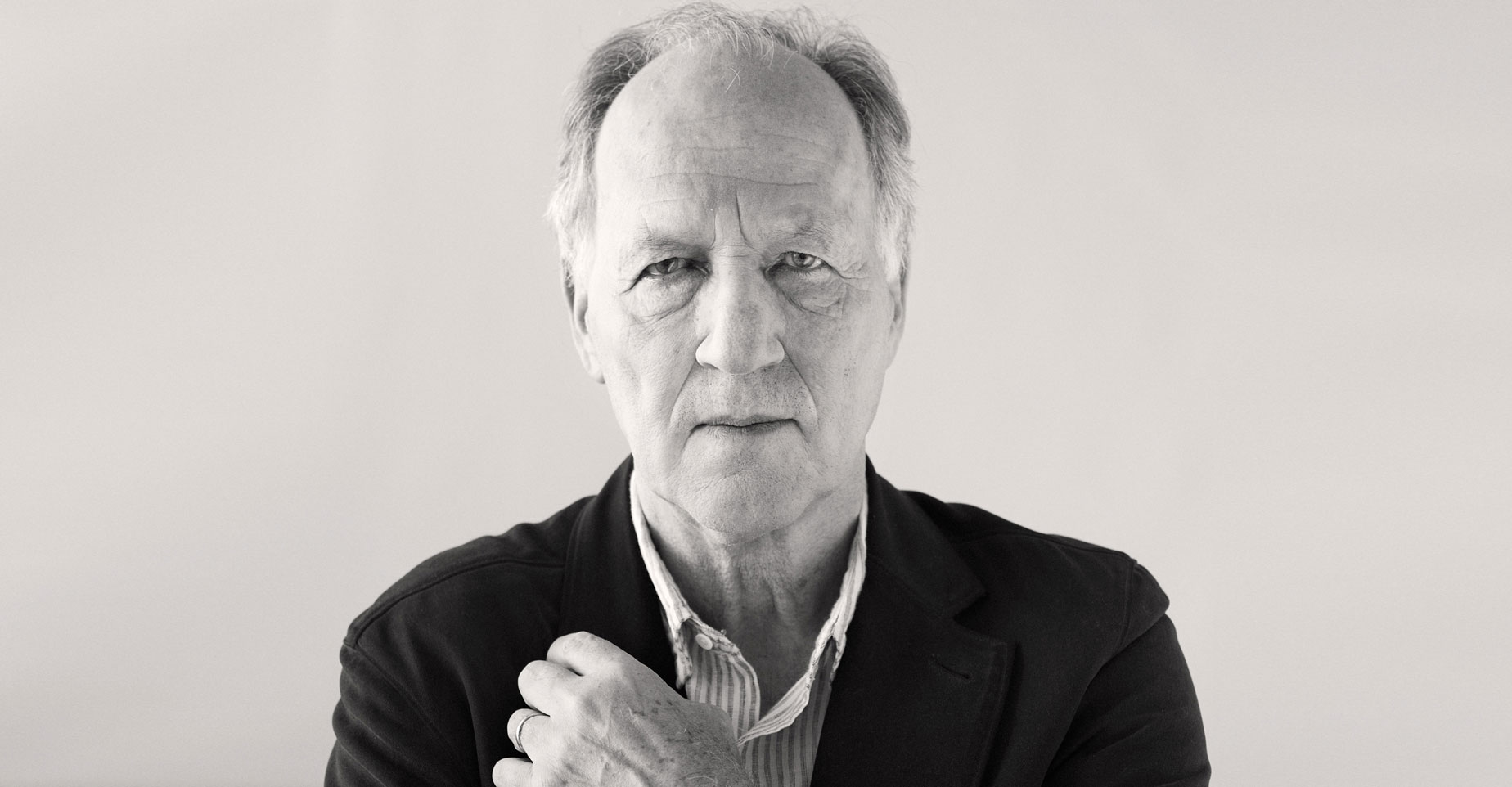Hello readers, in this first article of my column, I want to tell you about an eclectic, visionary artist. A filmmaker who broke boundaries by bringing to film man’s challenge to the absolute, Werner Herzog.
Contents
- 1 The Fire Within Werner Herzog: Beyond the genius of an artist who challenges man toward the absolute
- 2 Werner Herzog’s philosophy on filmmaking and storytelling
- 3 Werner Herzog’s unique perspective on life and the human condition
- 4 The most inspiring and thought-provoking Werner Herzog quotes.
- 5 Analysis of Key Passages from The Fire Within Herzog.
The Fire Within Werner Herzog: Beyond the genius of an artist who challenges man toward the absolute
I knew at that moment that I was going to be a director, and I was going to direct Kinski.
Werner Herzog
Werner Herzog is a name that resonates with film enthusiasts and critics alike. The German director has been making films for over five decades, and his works are renowned for their poetic imagery and philosophical themes. In 2019, a book titled ‘The Fire Within Herzog’ was published, exploring the life and career of this enigmatic filmmaker. The book delves into the themes present in Herzog’s films, analyzing key passages from his work. It also examines the impact of his films on film criticism and theory. In this article, we will take a closer look at ‘The Fire Within Herzog,’ providing an introduction to the book, Herzog’s life and career, the themes explored in the book, analysis of key passages, and reception and impact on film criticism and theory.
A man who digs, a restless artist. Risk, danger, conflict with nature and human relationships. Relationships influenced by constant tension produce prodigies, exceptional evidence of actor or undying hatred. His life resembled this extreme vision in an endless game of mirrors. The anachronism of a heroic conception in an age when heroes abolished them. He had a shamanic dream of cinema as a tool in which narrative is a means of knowing, probing, and reflecting concerning existence.
Werner Herzog’s philosophy on filmmaking and storytelling
Werner Herzog’s approach to filmmaking is nothing short of revolutionary. He believes a filmmaker must have a unique vision and the courage to pursue it relentlessly. To him, filmmaking is not just about telling a story but also about creating a work of art that transcends time and space. Herzog sees the camera as a tool for capturing the essence of life and bringing it to the screen in a way that moves and inspires audiences. His films are not merely entertainment but powerful reflections on the human experience that challenge us to think deeply about our place in the world. In short, Werner Herzog’s philosophy on filmmaking is an invitation to explore the depths of our creativity and embrace the power of storytelling.
Werner Herzog’s unique perspective on life and the human condition
Werner Herzog’s unique perspective on life and the human condition is equally inspiring. He sees life as a journey of discovery, full of wonder and mystery, and he believes that our purpose is to explore this world with curiosity and passion. Herzog’s films are a testament to his belief that humanity is capable of great things but also prone to folly and self-destruction. He challenges us to confront our fears and limitations, to push beyond what we think is possible, and to embrace the unknown with courage and determination. Whether it’s through his documentaries or his feature films, Herzog invites us to see the world in a new light and to discover the beauty that lies within ourselves and others.
The most inspiring and thought-provoking Werner Herzog quotes.
Finally, look at some of the most inspiring and thought-provoking Werner Herzog quotes. “The world reveals itself to those who travel on foot” reminds us of slowing down and taking in our surroundings. “I believe in the absolute necessity of cinema as a form of poetry” is a call to embrace the art of storytelling as a means of expressing ourselves and connecting with others. “What I’m after is a new way of expressing things” challenges us to push beyond the boundaries of convention and explore new creative horizons. These are just a few examples of Herzog’s wisdom, but each one has the power to inspire and transform us in profound ways.
In conclusion, Werner Herzog’s philosophy on filmmaking and storytelling, his unique perspective on life and the human condition, and his inspiring quotes are a testament to his creativity, passion, and courage. They remind us that we, too, have the power to create, explore, and inspire. So, let us embrace our creativity and use it to make a difference in the world.
The Fire Within Werner Herzog: An Introduction to the Book.
“The Fire Within Werner Herzog” is a collection of essays edited by Brad Prager and published by Wayne State University Press.
The book comprises thirteen articles written by scholars, critics, and filmmakers, exploring the various aspects of Herzog’s films.
The essays cover a wide range of topics, from the use of music in Herzog’s films to his depictions of nature and the human condition.
The book also includes an interview with Herzog conducted by Prager, providing a rare insight into the director’s creative process and philosophy.
“The Fire Within Herzog” offers a comprehensive examination of Herzog’s work, analyzing his films from different angles and providing new perspectives on his oeuvre. It is an essential read for anyone interested in the films of Werner Herzog or the intersection of art and philosophy.
The Life and Career of Werner Herzog.
Werner Herzog was born in Munich, Germany, in 1942. He grew up in a family of intellectuals and developed an early interest in literature and cinema. After studying history and literature at the University of Munich, Herzog began making short films in the mid-1960s.
His first feature film, ‘Signs of Life’ (1968), won the Silver Bear at the Berlin International Film Festival and established Herzog as a significant figure in the New German Cinema movement.
Over the next few decades, Herzog directed numerous critically acclaimed films, including ‘Aguirre, the Wrath of God’ (1972), ‘Fitzcarraldo’ (1982), and ‘Grizzly Man’ (2005). Herzog’s films are characterized by their poetic imagery, existential themes, and unconventional narratives. In addition to his work as a filmmaker, Herzog has also written several books, directed operas, and acted in films. He is considered one of the most influential filmmakers of his generation and continues to make films to this day.
Here is a brief quote from the artist’s biography. His career is lovely. I recommend that you go and delve into it.
The Themes Explored in The Fire Within Herzog.
‘The Fire Within Herzog’ explores various themes central to the filmmaker’s work. One of the most prominent themes is the relationship between humans and nature. Herzog’s films often depict nature as a force indifferent to human concerns, and his characters are frequently portrayed as struggling against the natural world. Another recurring theme is the search for meaning in a chaotic world. Herzog’s films often feature characters on a quest for transcendence or enlightenment but who ultimately find themselves confronted with the absurdity and futility of their efforts. The book also examines Herzog’s use of music in his films, often characterized by its emotional intensity and distinctive choices. Finally, ‘The Fire Within Herzog’ considers the role of the film itself as an art form, exploring how Herzog’s films challenge traditional notions of storytelling and representation. Overall, the book provides a nuanced and multifaceted exploration of the themes that have defined Herzog’s filmmaking career.
Analysis of Key Passages from The Fire Within Herzog.
‘The Fire Within Herzog’ includes several essays that closely read critical passages from Herzog’s films. For example, one paper analyzes the final scene of ‘Aguirre, the Wrath of God,’ in which the titular character is shown floating down a river on a raft, surrounded by monkeys. The essay argues that this scene represents Aguirre’s descent into madness and his rejection of the rational world. Another article examines the use of music in ‘Fitzcarraldo,’ focusing on the famous scene in which the protagonist hauls a steamship over a mountain. The essay argues that the music in this scene serves to heighten the emotional intensity of Fitzcarraldo’s struggle and to evoke a sense of transcendence. These analyses demonstrate how Herzog’s films are rich with meaning and symbolism and invite multiple interpretations. They also illustrate how ‘The Fire Within Herzog’ offers new insights into Herzog’s work and provides a deeper appreciation of his artistry.
Reception and Impact of The Fire Within Herzog on Film Criticism and Theory.
‘The Fire Within Herzog’ has had a significant impact on film criticism and theory since its publication. The book has been widely praised for its insightful analysis of Herzog’s work and its contributions to film studies. It has also sparked new debates and discussions about Herzog’s place in the canon of world cinema. In particular, the book’s emphasis on the philosophical themes in Herzog’s films has led to a renewed interest in the intersection of art and philosophy. Additionally, ‘The Fire Within Herzog’ has inspired new research on Herzog’s use of music and his unconventional approach to storytelling. Overall, the book has helped to cement Herzog’s reputation as one of the most influential filmmakers of his generation and has contributed to a deeper understanding of his unique artistic vision.
“The Fire Within Herzog” offers a comprehensive examination of the life and work of Werner Herzog, one of the most influential filmmakers of the 20th century. The book’s essays provide new insights into Herzog’s films, analyzing their themes, symbolism, and impact on film criticism and theory. ‘The Fire Within Herzog’ invites readers to delve deeper into Herzog’s unique artistic vision, exploring his use of music, his unconventional narratives, and his philosophical musings. The book is an essential read for anyone interested in the intersection of art and philosophy, as well as for those who are fascinated by the power of cinema to explore the human condition.
Overall, ‘The Fire Within Herzog’ is a fitting tribute to an extraordinary filmmaker whose work continues to inspire and challenge audiences worldwide.









